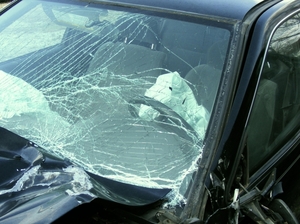Florida’s 5th District Court of Appeals ruled recently the trial court in Florida v. Kleiber incorrectly applied the strict compliance standard in granting a DUI defendant’s motion to suppress blood test evidence.

DUI blood test evidence is critical in any case wherein a person is alleged to have driven drunk. Where the evidence itself cannot be challenged on its validity or merits, a DUI defense lawyer may seek to suppress the evidence from being considered by the court in the first place.
There are a number of ways to do that, and the strategy is going to be case-specific.
Here, defendant, a 25-year-old firefighter, was arrested by the Florida Highway Patrol in 2012 after a collision a year earlier on I-75 near Wildwood. Around 4:30 a.m., defendant allegedly rear-ended a vehicle in front of him on the highway. That other vehicle overturned multiple times and collided with a fence. The other driver, 29, and his 20-year-old passenger were rushed to a local hospital in critical condition. The 20-year-old woman later died.
Continue reading
 Fort Lauderdale Criminal Attorney Blog
Fort Lauderdale Criminal Attorney Blog












